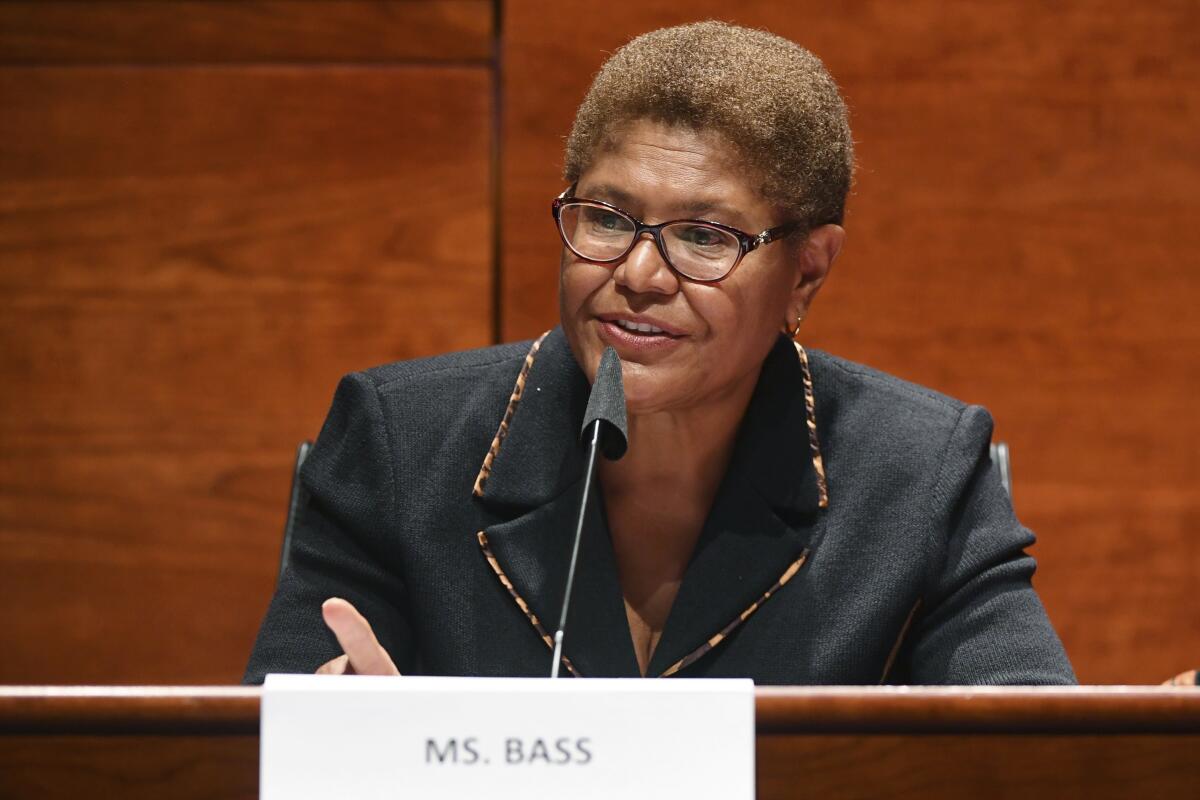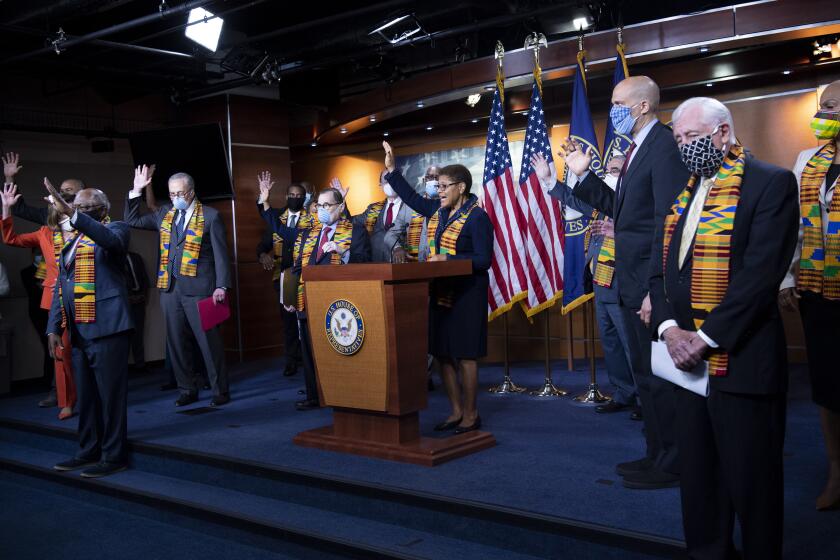George Floyd’s death sparked calls for police reform. Why hasn’t Congress acted?

A Minneapolis jury’s conviction of former Minneapolis Police Officer Derek Chauvin in the murder of George Floyd has reignited debate about what policing should look like in the United States.
In the weeks following Floyd’s death and the ensuing outrage that caused millions of Americans to pour into the streets to protest in the midst of a pandemic, Congress promised fundamental change to policing.
There was legislation to standardize training across the country, to keep problem officers from moving between departments without their records following them, to ban the use of chokeholds and no-knock warrants.
But Congress failed to reach an agreement that could pass both the House and Senate and attention moved to other things.
Negotiations for a bipartisan deal on police reform continue informally on Capitol Hill, and the lead House sponsor, Rep. Karen Bass (D-Los Angeles), said on CNN’s “State of the Union” on Sunday that she is hopeful because those involved are “very sincere, and it’s a bipartisan group.”
Bass is working with Sens. Cory Booker (D-N.J.) and Tim Scott (R-S.C.). She told reporters on Capitol Hill on Tuesday that she is optimistic they will reach an agreement and get a bill to President Biden’s desk in the coming months.
Atty. Gen. Merrick Garland rescinded Friday restrictions on Justice Department’s use of consent decrees to force police departments to reform.
“I believe that we want to make something happen,” Bass said.
Last month the House passed Bass’ George Floyd Justice in Policing Act by a 220-212 vote, with no Republican support and two Democrats voting no.
The legislation, which would ban chokeholds, end “qualified immunity” for law enforcement officers and create national standards for policing in a bid to bolster accountability, passed the House last summer but was not considered by the Republican-controlled Senate.
Democrats in turn blocked consideration of a Republican policing reform bill proposed by Scott last summer, saying though it was similar to their proposal in some ways, it did not go far enough because it did not modify so-called qualified immunity for police officers, which has made it harder for victims of brutality to file civil lawsuits over excessive force, or make it easier to prosecute police officers for criminal behavior.
Los Angeles Rep. Karen Bass has worked on police abuse issues for 47 years. Now she’s in charge of House effort to enact it into law.
Even now that Democrats control the Senate, hurdles remain for passing policing reform out of the Senate, where most legislation faces a 60-vote threshold, Bass said.
“It’s one thing to pass legislation in the House; it’s a super hurdle to get it passed in the Senate,” Bass said in the CNN interview. “But we are working.”
More to Read
Get the L.A. Times Politics newsletter
Deeply reported insights into legislation, politics and policy from Sacramento, Washington and beyond. In your inbox three times per week.
You may occasionally receive promotional content from the Los Angeles Times.









